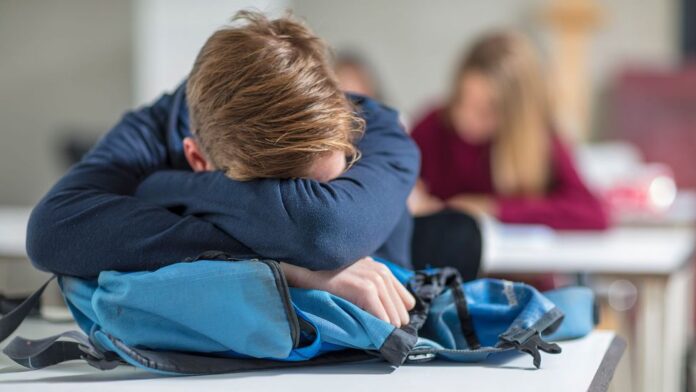In general, sleep is important. It is an obvious conclusion. However, our society has crippled itself by adopting an attitude of constant motion. In numerous ways, we are conditioned from a young age to believe that exhaustion is a suitable correlate of productivity.
According to the Sleep Association, 50-70 million adults in the United States suffer from a sleep disorder. The Centers for Disease Control and Prevention (CDC) recommends that adults sleep seven or more hours per night for optimal health and well-being. Short sleep is defined as less than seven hours of sleep per twenty-four-hour period.
Teens frequently imitate their parents’ behavior. If a parent’s sleep habits are altered, it is likely that their child will adopt the same routine and find it acceptable. Adults who are physically and mentally healthy value quality sleep and are aware of how it can affect their productivity and overall mood; therefore, adults have a good understanding of how adolescents can suffer if they do not get enough sleep.
Here are seven ways sleep deprivation can harm your teen that you may not be aware of:
Gain in weight
Teens who stay up late are more likely to snack on unhealthy foods because they are compelled to do so late at night. The majority of late-night snacking is related to television and social media. In addition, the majority of adolescents are involved in extracurricular activities and have rigorous academic requirements, resulting in long days. If your adolescent does not eat dinner until late in the evening, the food will not be properly digested. Late-night eating can cause severe digestive problems. As the body’s metabolic process enters a resting state during sleep, digestion naturally slows down. Therefore, calories are not burned off. Additionally, lying down in bed can cause indigestion, acid reflux, and heartburn, all of which can contribute to sleeping difficulties.
Weaker immune system
Immune system proteins known as cytokines are secreted while a person is asleep. This protein promotes sleep, and when you are ill, your body requires more of it. Sleep deprivation can reduce cytokine production, resulting in a weakened immune system unable to fight off pathogens.
Threatens athletic performance
A teenager’s athletic performance will suffer if they are exhausted. Teen athlete lacks the stamina to meet goals and keep up with their team. Inadequate athletic performance can result in unanticipated accidents and other emotional setbacks.
Poor grades
Insufficient sleep can impair a teen’s ability to learn, listen, concentrate, and solve problems. Teens may have difficulty paying attention in class, completing assignments, or remembering homework. Sleep stimulates the neurons in the brain responsible for storing information in memory, according to scientific research.
Bad conduct
Anyone who does not get the recommended amount of sleep is prone to frustration and irritability. Sleep deprivation can produce biochemical effects that alter a teen’s disposition and impair concentration. A lack of sleep will cause your teen to be impatient, anxious, and frequently irrationally irritated.
Increased likelihood of injury
According to a study conducted by the National Sleep Foundation, at least 100,000 traffic accidents occur annually due to drowsiness and/or fatigue. Parents must be proactive and teach their adolescent children that driving while sleep deprived is dangerously impaired driving. Typically, society associates impaired driving solely with drugs and/or alcohol, but this is not accurate.
Mental health concerns
According to a study published in the Journal of Youth and Adolescence, each hour of lost sleep is associated with a 38 percent increased risk of feeling depressed or hopeless and a 58 percent increase in suicide attempts. The amount of sleep a person receives is a significant component of their mental health. Teens who are sleep deprived are more likely to perceive their surroundings through a hazy lens. Sleep deprivation is most likely linked to perceptions of unfairness or wrongness. When someone is sleep deprived, their overall judgment is drastically altered. Teenagers are not unique.
In light of this, it is equally important to determine the cause of your teen’s sleeplessness. There are numerous potential causes. Before you become anxious and overly concerned, investigate the causes and determine whether you can devise a plan to assist.
Puberty – Indeed, puberty is the root of many problems. There is scientific evidence of a two-hour biological shift in an adolescent’s internal clock. This justification is consistent with the notion that your teen’s body can handle a later bedtime. However, this may necessitate that they sleep later in order to compensate for the later bedtime. Eventually, their bodies will shift and correct themselves. Be vigilant and encourage your teen to take naps whenever possible in the interim.
Early school start times – Your child’s wake-up time dictates the rest of the day. If your adolescent does not go to bed at a decent hour, they will awaken early and be grumpy. Consider having your teen begin their bedtime routine earlier and assisting them in carving out time to sleep if bedtime is a lengthy process.
Your teen may be taking on too many responsibilities between work, extracurricular activities, and technology. These are aspects that require regulation and attention. Communicate with your teen and attempt to strike a balance with everything. While none of the items listed are necessarily negative, their frequency of use can be.
Use your best judgment and always be willing to discuss your concerns with your teen. Even though you are the parent, your teen is old enough to have an opinion and truly understand the repercussions of not getting enough sleep.

















